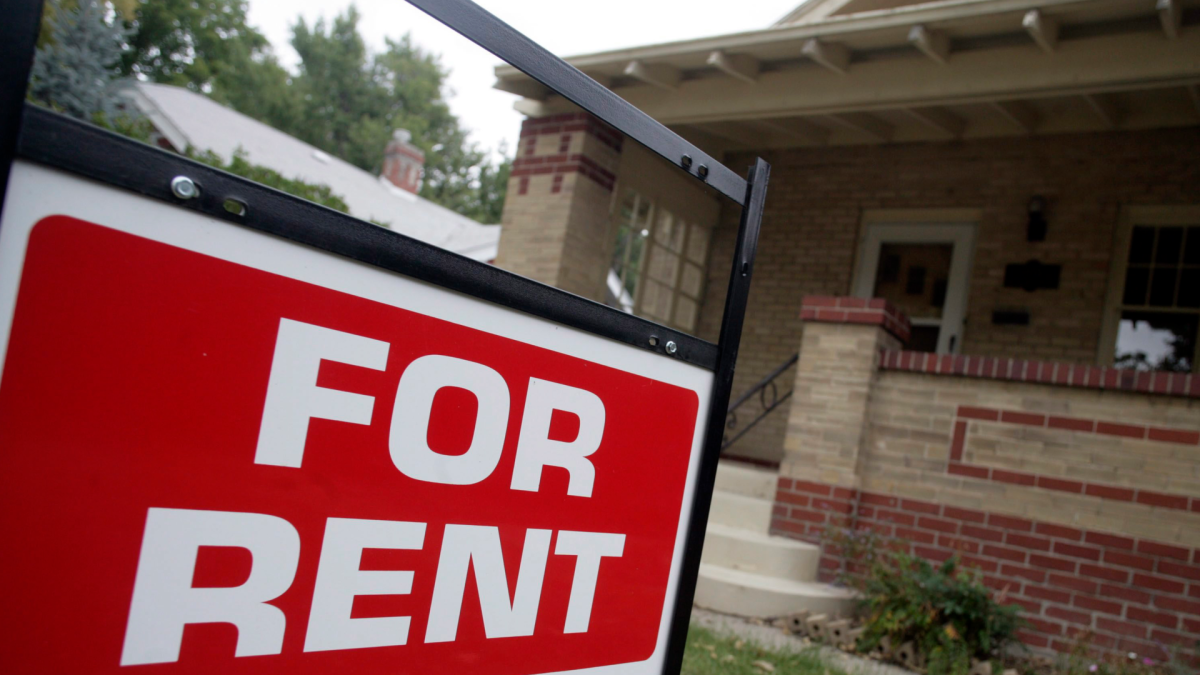A senior analyst with Canada’s housing agency says renters looking for a place in Hamilton in 2021 paid ‘significantly’ more on average than those who already had a place.

Anthony Passarelli, who tracks Hamilton, Halton and Peel Regions for the Canada Mortgage and Housing Corp. (CMHC) says Ontario’s rent freeze legislation was kind to existing renters but generally did little for those who needed a new place.
“The discrepancy here … was about 20 per cent difference between the rents of someone who’s looking for a new unit versus someone who’s already renting, it stayed put,” Passarelli told 900 CHML’s Bill Kelly Show.
CMHC’s January rental market report revealed vacant one-bedroom units were offered at an average of $1,238, about nine per cent higher than the rent paid for occupied units.
Meanwhile, larger two-bedroom units had an average asking rent of $1,502, close to 11 per cent more than the existing renters paid.
The largest discrepancy in price was with Hamilton’s west end – specifically an area between the 403 and Main Street West – where prospective tenants paid 20 per cent more for an apartment than current tenants.
On average, rent in Hamilton increased 3.8 per cent in apartment-style structures in 2021 which is slower growth than the 5.4 per cent recorded for 2020. Passarelli suggests the restrained growth was due to 85 per cent of all rented units qualifying for the provinces’ rent freeze.
However, rents continue to grow faster than incomes in the city, compounding problems for mid-income renters looking for affordable options.
“Vacancies were lower at the end of last year and rents have continued to grow very quickly,” Passarelli said.
“So more and more people are having this affordability crunch where they’re paying more than they should towards their rents.”
The CMHC estimates only one of every seven vacant units in the primary market is affordable to renters at the 40th income percentile.
An industry-accepted measure for affordability estimates that a household income should be spending about 30 per cent for accommodations, however, renters in Hamilton with an income of $42,000 are paying more than the $1,049 they should be.
Virtually no units were available to low-income renters making in the range of $25,000.
“What we found is that if you’re making below the median income, a very small percentage of those vacant units are affordable,” Passarelli said.
“So a lot of the vacant units are only affordable to people … with incomes above the 50th percentile – so higher than the median.”
Those looking for a suite in a purpose-built building face an average rent of $1,362 for a two-bedroom and have to battle a 2.8 per cent vacancy rate, according to the 2021 data.
The vacancy rate with condominium rental apartments did go up slightly from 0.3 percent for 2020 to 0.4 per cent in 2021.
Prices, however, were up about 13 per cent to $1,996 per month compared to 2020’s $1,773.
- Posters promoting ‘Steal From Loblaws Day’ are circulating. How did we get here?
- Canadian food banks are on the brink: ‘This is not a sustainable situation’
- Is home ownership only for the rich now? 80% say yes in new poll
- Investing tax refunds is low priority for Canadians amid high cost of living: poll
Despite the largest supply increase in 30 years in the city, prospective renters still outnumbered what was available.
Nearly 900 new units appeared in the Hamilton metro area last year marking the largest annual increase in more than 30 years. Most of the supply came from newly completed two-bedroom units in central Hamilton.
But rental demand outperformed the increase with the need for close to 1,200 additional units, eclipsing a record set in 2017.
“There were so many more renters out there that still caused vacancies to go down and rents to go up,” said Passarelli.
“So supply is definitely the number one factor that would help to keep rents more on the affordable side of things. It’s just a matter of continuing with that strong year we had last year.”
Average rents up 3% across Canada in 2021
CMHC’s report showed the average rent for a two-bedroom home in the 37 areas the federal housing agency studied increased to $1,167 last year, a three per cent rise from $1,128 in 2020 and $1,080 in 2019.
Vancouver and the Greater Toronto Area are facing the most severe affordability challenges because those cities held onto the highest average monthly rent for a two-bedroom apartment. Vancouver was up 2.4 per cent to $1,824, while rent in the GTA rose 1.5 per cent to $1,666.
Active listings suggest two-bedroom averaging $1,800 per month as of January
Two Canadian-based agencies that analyze rental data from active listings – Rentals.ca and Zumper.com – say with the worst of the pandemic over, it’s anticipated increases in average rents will be substantial in 2022 to offset slow growth in rates.
The two boast more accurate rental rates than those in the CMHC report since they don’t base data on all purpose-built rentals vacant or occupied – they use just the ones vacant.
As of the end of January, Rentals.ca put Hamilton 13th on their list of 35 cities for the highest average monthly rent, with a one-bedroom home averaging $1,559 a month.
The city is 20th on the same list for a two-bedroom rental at $1,870 per month.
Year over year, the average for a one-bedroom unit in Hamilton was up 6.9 per cent, while the cost of a two-bedroom was down 9.8 per cent.
Hamilton’s average for all property types in January increased 3.9 per cent to $1,914, according to Rentals.ca
Meanwhile, Zumper.com has Hamilton at number 11 on their list of 23 markets with one-bedroom rentals – $1,440 up 5.10 per cent year over year.
A two-bedroom suite is up 5.9 per cent by their estimates to $1,800.









Comments